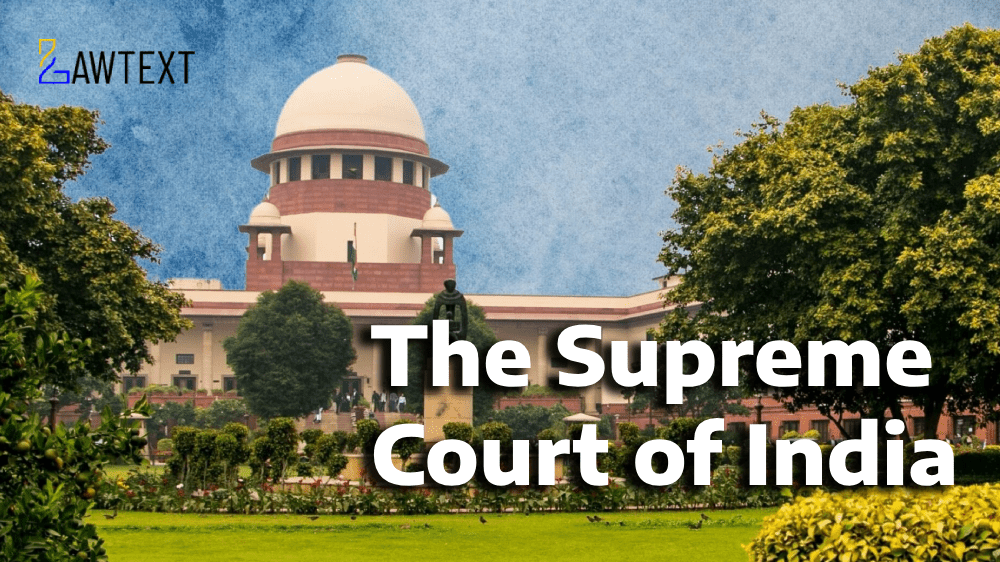CASE NOTE & SUMMARY
Contractual Terms and Damages – Clause 49.5 of the General Conditions of Contract (GCC) barred claims for damages due to employer delays. The Arbitral Tribunal upheld this clause, and the High Court dismissed challenges under Sections 34 and 37 of the Arbitration and Conciliation Act, 1996.
Arbitration Award – Public Policy & Patent Illegality – The appellant contended that barring compensation under Clause 49.5 violated public policy and the Indian Contract Act, 1872. However, the Supreme Court held that contractual terms freely agreed upon could not be challenged merely on policy grounds.
Waiver & Estoppel – The appellant, having sought and accepted multiple extensions under Clause 49.5 without objections, was estopped from later challenging its validity.
Scope of Judicial Review – Arbitration Awards – The Supreme Court reiterated that interference under Section 37 of the Arbitration Act is limited to grounds of patent illegality or violation of public policy, which were not established in this case.
Acts and Sections Discussed:
- Arbitration and Conciliation Act, 1996 – Sections 16, 34, 37
- Indian Contract Act, 1872 – Sections 23, 28
Subjects:
Arbitration, Construction Contract, Damages, Estoppel, Limitation of Liability, Public Policy, Patent Illegality, Contractual Bar, Clause 49.5, Judicial Review
Facts:
- Nature of Litigation – Appeal under Section 37 of the Arbitration and Conciliation Act, 1996, challenging an arbitration award rejecting claims for damages in a construction contract dispute.
- Who is Asking the Court and for What Remedy? – M/s C & C Constructions Ltd. (Appellant) sought damages from IRCON International Ltd. (Respondent) due to delays in completing Road Over Bridges (ROBs) in Rajasthan.
- Reason for Filing the Case – The appellant claimed that the respondent’s delays caused financial losses, which were compensable despite a contractual clause barring such claims.
- What Has Already Been Decided Until Now? –
a. Arbitral Tribunal (2019) – Dismissed the appellant’s claims based on Clause 49.5 of GCC.
b. Single Judge (Delhi High Court, 2021) – Rejected the challenge under Section 34, affirming that the appellant accepted Clause 49.5’s terms.
c. Division Bench (Delhi High Court, 2023) – Dismissed appeal under Section 37, confirming the enforceability of Clause 49.5.
Issues:
a. Was Clause 49.5 a valid contractual limitation barring claims for damages?
b. Did the appellant waive its right to claim damages by repeatedly invoking Clause 49.5 for time extensions?
c. Could the arbitration award be set aside on public policy or patent illegality grounds?
d. Was judicial interference justified under Sections 34 and 37 of the Arbitration Act?
Submissions/Arguments:
-
Appellant:
- Clause 49.5 violated public policy and the Indian Contract Act, as parties cannot contract out of statutory rights.
- The Arbitral Tribunal should have allowed evidence to prove that the delays were entirely attributable to the respondent.
- The clause was effectively waived by the respondent’s communications inviting claims for financial losses.
-
Respondent:
- Clause 49.5 was a limitation of liability provision, upheld in previous Supreme Court judgments.
- The appellant repeatedly invoked and accepted extensions under Clause 49.5 without protest, thus waiving its right to claim damages.
- The arbitration award was within contractual terms, and judicial review under Sections 34 and 37 was limited.
Decision:
- Supreme Court dismissed the appeal, upholding the validity of Clause 49.5.
- Judicial interference in arbitration matters remains limited unless fundamental violations of law or public policy are demonstrated.
- Appellant, by conduct, was estopped from challenging Clause 49.5 after repeatedly accepting extensions under it.
Ratio:
- Contracts freely entered into, containing clear limitation clauses, must be upheld unless they violate statutory provisions or fundamental legal principles.
- A party cannot accept benefits under a contractual clause and later challenge its validity on public policy grounds.
- Courts must refrain from re-examining arbitral awards beyond the restricted scope of Section 37.
Citation: 2025 LawText (SC) (1) 316
Case Number: CIVIL APPEAL NO. 6657 OF 2023
Date of Decision: 2025-01-31
Case Title: M/s. C & C Constructions Ltd. Versus IRCON International Ltd.
Before Judge: (Abhay S. Oka J., Ujjal Bhuyan J.)
Appellant: M/s. C & C Constructions Ltd.
Respondent: IRCON International Ltd.

